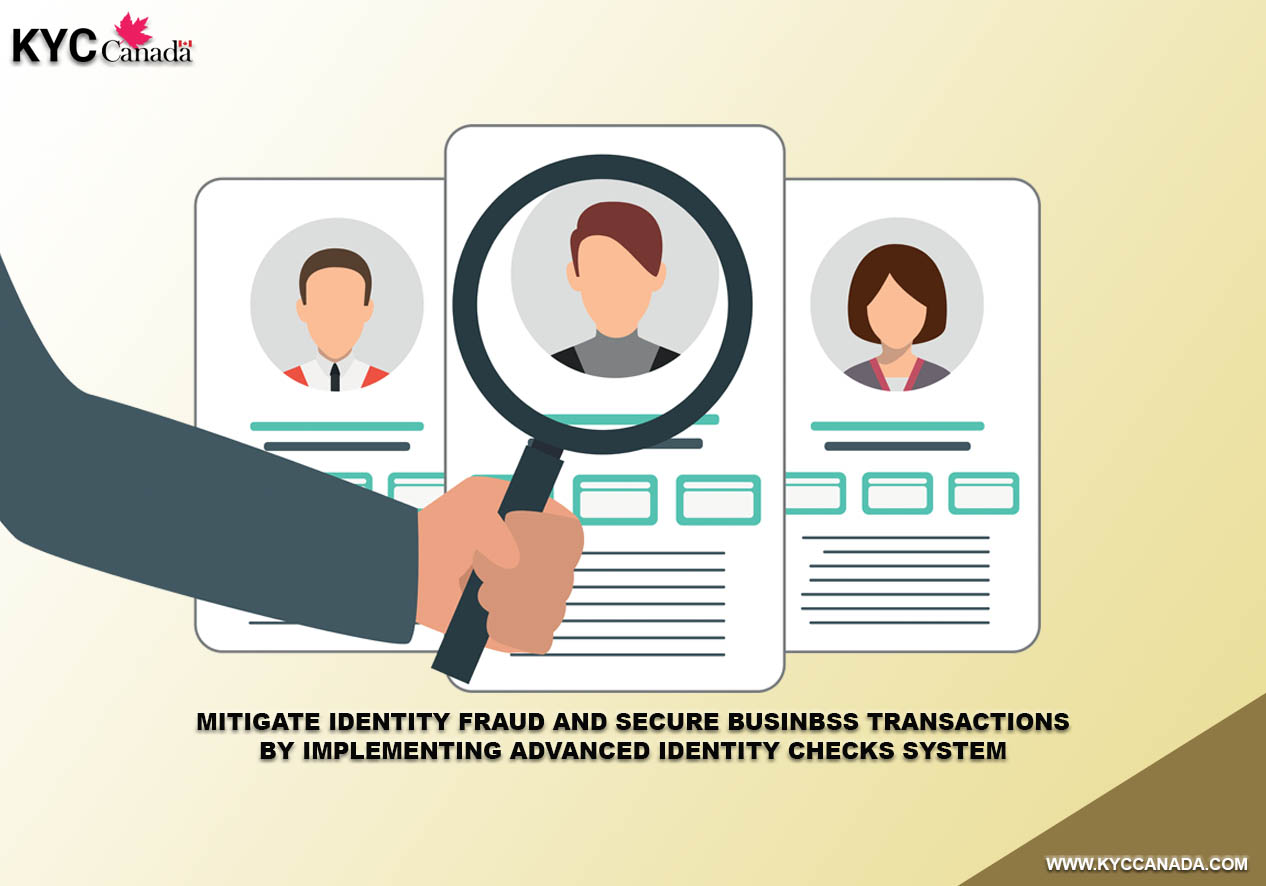Identity checks have become a business need of banking and non-banking sectors as the digital transformation is accelerating along with digital client onboarding. With the rapid digital operations in the market, fraud has also become a persistent threat to Canadian businesses. Fraudsters use advanced techniques to commit financial crimes. Money launderers and fraudsters commonly use synthetic identities that are made up of mixed genuine and fake information, even harder to identify. According to the Canadian Anti-Fraud Centre, millions are lost annually to identity fraud, and most of them are due to the failing to verify identities properly. It reveals the vulnerability of companies and organizations that are operating in the Canadian market. Identity checks play a vital role in authenticating identities for small, medium and large-sized enterprises.
What Are Identity Checks?
Identity checks are the process to verify the authenticity of a business client, vendor and investor. It ensures that a person is who they say they are. These checks can be manual or automated and include verifying government-issued IDs, passports, driving licenses and utility bills. Manual identity checks are a time-consuming process and require in-person identity verification. Digital identity checks are quick and can be done from anywhere, anytime. That’s why the only digital identity verification is suited to digital business operations. It makes it easy for companies to authenticate identity and provide a good user experience during the client onboarding process.
How Identity Checks Work?
Identity checks include various identity verification methods like KYC verification, AML verification, age verification, document verification, transaction monitoring, business verification, PEP and sanction list verification. The identity checks process completes various steps as follows:
Step 1: Data Collection
The user provides personal or business information, such as full name, address, and date of birth, by uploading a government-issued ID, such as a passport, driving license, or National ID card.
Step 2: Document Verification
The compliance team verifies the submitted ID documents, using AI-powered document recognition and authenticity checks. It ensures that ID documents are valid or not.
Step 3: Facial Authentication
Video KYC solution is often to liveness detection, face matching. It ensures that a person is live or not and assists in quick authentication during client onboarding.
Step 4: Database Cross-Checks
Advanced systems integrate with national and global databases (watchlists, PEP lists, credit bureaus) to check the background of the client and ensure the legitimacy of identities.
Step 5: Approval or Flagging
If everything checks out, the user is approved for onboarding. If inconsistencies arise, it flags the suspicious identity for further review.
Why Identity Checks Matter for Canadian Businesses?
Identity checks matter a lot for Canadian businesses, and there are various reasons behind it, as follows:
Ensure Regulatory Compliance:
Canada has strong anti-money laundering (AML) and KYC laws. Identity checks ensure AML and KYC compliance for companies and organizations that are operating in the Canadian market. By performing thorough identity checks, businesses can ensure FINTRAC regulations, avoid heavy penalties, and maintain operational licenses.
Prevent Fraud:
Identity verification solutions help ensure genuine business identity and raise the red flag for fake identities. Fake identities are used to open fake accounts, apply for loans, or conduct unauthorized transactions. By implementing digital identity checks businesses can authenticate real users in real-time.
Enhance Customer Trust:
When customers see that a business takes identity verification seriously, it builds trust in the competitive market. It matters for industries like banking, e-commerce, and crypto trading platforms, where user data and funds are at stake. Identity checks ensure legitimate client and secure business transactions.
Reduce Operational Risk:
Fraud not only leads to financial losses but also increases operational burdens. With identity checks integrated into onboarding systems, businesses can minimize these burdens. Automated identity verification reduces manual workload, accelerates customer onboarding, and provides a smooth, secure user experience.
Real-World Benefits:
- A Toronto-based neobank implemented identity verification APIs and reduced fraudulent sign-ups by 82%.
- A British Columbia real estate company adopted identity checks and avoided a multi-million-dollar transaction tied to a fake identity.
- A Canadian insurance startup streamlined claims processing while recognising 19 false identities using automated document verification.
These success stories prove why identity checks matter for financial and non-financial businesses in today’s digital age.
Building a Fraud-Free Business Starts with Verified Identities:
In 2025, digital identity verification solutions are paramount for small, medium and large-sized businesses. Companies and organisations can secure their platforms, protect customers, and ensure long-term success by implementing a robust identity verification system. Therefore, choose a trusted and reliable KYC services provider that assists in authenticating identities quickly and accurately. KYC Canada is a trusted KYC solutions provider for banks, financial institutions, fintech, neobanks, insurance, forex trading and payment processors. AI and machine learning algorithm-powered identity verification solutions ensure a fraud-proof business reputation in the competitive market and business success for a long time.

